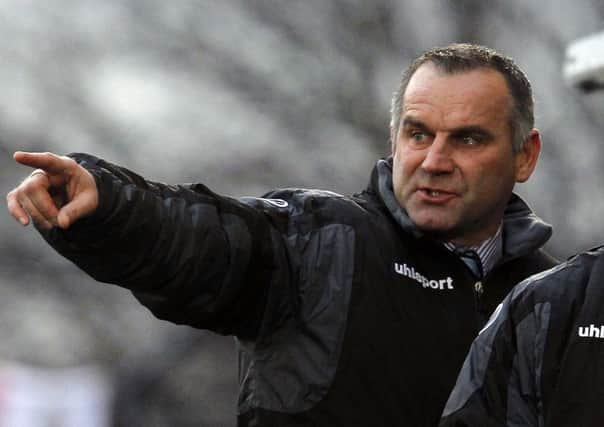Opinion: The statistics behind the story as Ferguson chalks up 200 games


Given the reputation perpetuated in media circles - totally unfounded when it comes down to facts - of Ballymena being a ‘hire ‘em, fire ‘em club’ it’s certainly a noteworthy achievement for any Ballymena boss to clock up a double century in charge.
Irrespective of the fact that it’s Ferguson’s first managerial position, when you reach that sort of milestone, it’s safe to assume the managerial ‘L’ plates have long since been discarded; the term ‘rookie boss’ no longer applies.
Advertisement
Hide AdAdvertisement
Hide AdIt may surprise some fans to learn that in each of his previous three and a half seasons, prior to the current campaign, Ferguson has enjoyed what would be known in American sports as ‘winning seasons’ i.e. one where his side won more games than it lost.
Even in the current mediocre campaign, the former international striker isn’t that far off maintaining that record, although the win stats have been ramped up considerably by United’s extended progress in the League Cup and the County Antrim Shield triumph.
After Saturday’s defeat at Glentoran - United’s fourth in a row - Ferguson’s record reads: played 199, won 84, drawn 36 and lost 79.
That gives him a none-too-shabby win percentage of 42.21 per cent, which put him ahead of his predecessors Roy Walker (33.3 per cent) and Tommy Wright (39.2 per cent) somewhat in the shade.
Advertisement
Hide AdAdvertisement
Hide AdOf Ballymena managers of the modern era, only Kenny Shiels (41.62 per cent) comes closer to Ferguson - and it has to be remembered that Shiels’ win stats were enhanced considerably by two seasons in the much less competitive old first division.
By the same token, a proportion of Ferguson’s victories have come in the post-split matches against lower-ranked sides - by which stage a top six place has long since disappeared, but you can’t simply airbrush them out as if they never happened.
It’s an often thrashed-out argument in social media circles about whether or not Ballymena are making progress under Ferguson.
On the face of it, you would imagine that winning more games than your predecessors - with the trump card of winning two trophies, which none of them managed to achieve - is irrefutable evidence of Ballymena’s progress in Ferguson’s time in charge.
Advertisement
Hide AdAdvertisement
Hide AdIt has been slow progress, painfully so in some aspects, particularly in terms of league performances, but to people looking in from the outside, there have been a couple of trophies, a couple more near misses, continuity from season to season and regular, if frustrating, mid-table league positions. Yet I struggle to remember an era in recent times that has produced so much disenchantment at the Showgrounds.
It’s why other journalists, who only have the benefit of seeing Ballymena a couple of times a season and by keeping one eye on Irish League matters in general terms, often contact me when the latest negative vibe emanates from the Showgrounds to ask: “Just what IS going on at Ballymena?”
And therein lies the enigma. What those people don’t see, but what those faithful fans who watch Ballymena week in, week out, do are the bones of contention such as lengthy runs without wins (with Ballymena showing signs of embarking on another one at present), the failure to resolve the inability to stop conceding goals and the string of heavy beatings - Ballymena have conceded four or more goals in a match on a staggering TWENTY-TWO occasions under Ferguson - that have punctuated the manager’s tenure.
It’s a classic case that all is not as it seems on the surface, that the stats don’t tell the full story. The only question is whether the understandable level of frustration towards the manager is proportionate to what he has achieved. You could ask 10 different people that and get 10 different answers - it’s purely a question of individual opinion.
Advertisement
Hide AdAdvertisement
Hide AdWhatever way you describe Ballymena’s progress over the last four years - slow, miniscule, perhaps even non-existent in some people’s eyes - I believe Ballymena fans are struggling to come to terms with the fact that other clubs’ progress has been more spectacular in the same period.
We’re now living in an era where qualification for Europe can take you into a different stratosphere in Irish League terms - you only have to look at Crusaders collecting a cool half a million for their Champions League exploits last summer. To compete against that is like asking someone to take on a Formula One car using a family saloon.
Similarly, would Glenavon still be plodding alongside Ballymena in mid-table were it not for their victory in the 2014 Irish Cup final meeting between the sides and the launchpad that European money brought them?
One thing is sure, if United don’t snap out of this current rut between now and the end of the season, Ferguson, and Ballymena, will have more to worry about than diminishing win statistics as he embarks on his third century of games.